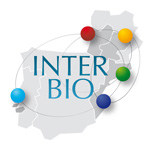
|
|
|
ANDNMO12 Analysis of NGS Data from Non-Model OrganismsCo-organised by Gabriel Marais, Raquel Tavares and Pedro Fernandes |
|
IMPORTANT DATES for ANDNMO12
|
Instructors: |

Ludovic Orlando is an Associate Professor at the
Centre for GeoGenetics since April 2010, and before that was Assistant professor at the ENS Lyon for 5 years.
He has been studying many different species and in particular extinct species such as extinct equids and mammoths.
|

Ed Green is an Assistant Professor at UCSC. Formerly in the
Max Planck Institute for Evolutionary Anthropology (Leipzig) with Svante Pääbo, he was head of the Neanderthal genome
project. Ed Green is an expert in genome assembly, annotation and analysis. He was involved in the Assemblathon, a competitive assessment of de novo
short read assembly methods, and is currently involved in several genome projects.
|

Nicolas Galtier is a CNRS Professor at the University of Montpellier 2.
His interests go from deep phylogeny and the origin of life to genome evolution. These past years, he has been
working on mitochondrial genomes, linking molecular evolution to species biology and ecology. In 2009, he was awarded
an ERC advanced grant to work on population genomics of non-model animal organisms using RNA-seq data. Affiliation: CNRS, Université Montpellier 2, Montpellier, FR |

João Lourenço is a postdoc in Nicolas Galtier's group and is
intensively using Galaxy to process and analyse RNA-seq data to study population genomics of non-model animal organisms.
|
Course description:The genomic revolution started in late 90's with the first genomes being sequenced. At the time, sequencing was costly and only major lab-organisms and humans were sequenced. The other "non-model" organisms studied in evolution and ecology were left behind. With the Next Generation Sequencing (NGS) technologies, costs have greatly decreased and the genomic revolution now extends to these "non-model" organisms. A burst of full genome or transcriptome sequencing projects has followed but handling NGS data from "non-model" organisms is very challenging. This course addresses NGS data production, processing and analysis. The objective is to see how these data can be bioinformatically tracked and how to plan NGS sequencing to ease up processing, assembly and analysis.NGS data requires special handling, different fom Sanger type sequencing data. NGS data consists of a large number of reads, all of them short and with even shorter overhang. Computationally, the assembly of many short reads with small overhang and varying quality is much more challenging. In practical terms, researchers need to deal with NGS data in a different way, many times requiring unique computational skills. Participants in this course can expect to gain practical insights on how to use NGS data in their projects by a series of techniques that they will learn how to combine. These techniques help the user to address a variety of problems that are very common in research projects. Participants will start by learning how to to go from raw data to a usable dataset. And will end-up knowing how to look at genome assemblies and mapping to release the potential of large scale sequencing. They will also learn how to do NGS based comparative and population genomics analysis. Note: The course program includes three research seminars, each day at 14h00, that are open to the public. See under Detailed Program marked in Blue. |
|
Target Audience:
Course Pre-requisites: |
|
Detailed Program |

In collaboration with INTERBIO
|
|
Instituto Gulbenkian de Ciência, Apartado 14, 2781-901 Oeiras, Portugal Last updated: April 12th 2012 |